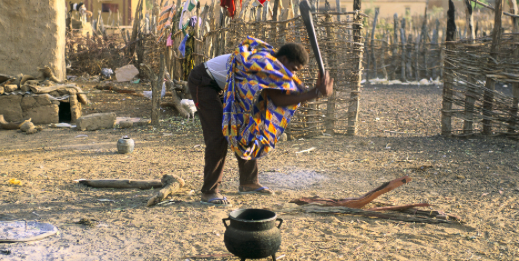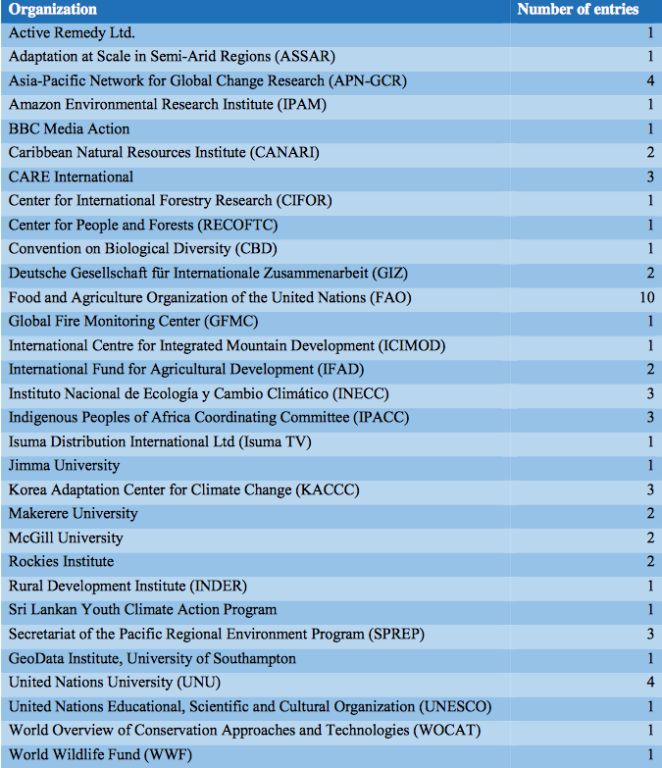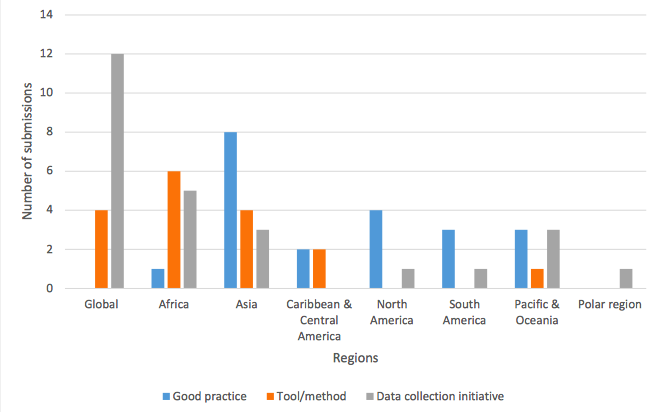A compilation of good practices, tools and available data collection initiatives for the use of local, indigenous and traditional knowledge and practices for adaptation

Introduction
Following the recommendations of the Adaptation Committee (AC) in relation the use of indigenous and traditional knowledge and practices, best practices and needs of local and indigenous communities and the application of gender-sensitive approaches and tools for understanding and assessing impacts, vulnerability and adaptation to climate change, the Subsidiary Body for Scientific and Technological Advice (SBSTA) compiled relevant good practices and tools and available data collection initiatives. These build on existing knowledge-sharing platforms, including the database on best practices and available tools for the use of indigenous and traditional knowledge and practices for adaptation.
All the 64 entries that are part of this compilation*, as well as additional relevant inputs contributed by Parties or organizations on a rolling basis, are available and easily searchable on the Adaptation Knowledge Portal. This online knowledge-sharing and learning tool will contribute to widely disseminating the wealth of information contained in this compilation, so that local, indigenous and traditional knowledge and practices are better taken into account in the design and implementation of adaptation plans and actions.
*Access the full compilation from the right-hand column. You can also find a compilation containing 9 entries in Spanish here.
Methodolgy
The method used in the compilation of this study is outlined briefly as follows:
- Includes inputs from NWP partner organizations and expert organizations, research undertaken by the secretariat, and builds on the database of 18 best practices and available tools for the use of indigenous and traditional knowledge and practices for adaptation, which was generated under the NWP in 2013 and has been largely updated.
- Following a call for contributions of the secretariat, 16 of the 315 NWP partner organizations and 8 expert organizations provided 39 submissions based on detailed questionnaires.
- The compilation also includes 7 entries prepared through the research undertaken by the secretariat and verified by the corresponding lead authors or expert organizations.
- The entries are based on the information provided by NWP partner organizations and other relevant organizations, with only minor editorial amendments.
Summary
The table below displays the number of entries by organization. The entries are based on the information provided by NWP partner organizations and other relevant organizations, with only minor editorial amendments.

The entries contained in this compilation are organized in three categories: good practices; tools and methods; and data collection initiatives. The compilation gathers examples from different regions and sectors. The figure below shows the distribution of entries by category and by region.
To ensure that new, relevant and useful examples are included in this compilation, including in Spanish and in French, and that the current entries up to date, please send your suggestions for new entries and updates to [email protected].
Suggested citation
UNFCCC, 2016. A compilation of good practices, tools and available data collection initiatives for the use of local, indigenous and traditional knowledge and practices for adaptation.

(0) Comments
There is no content